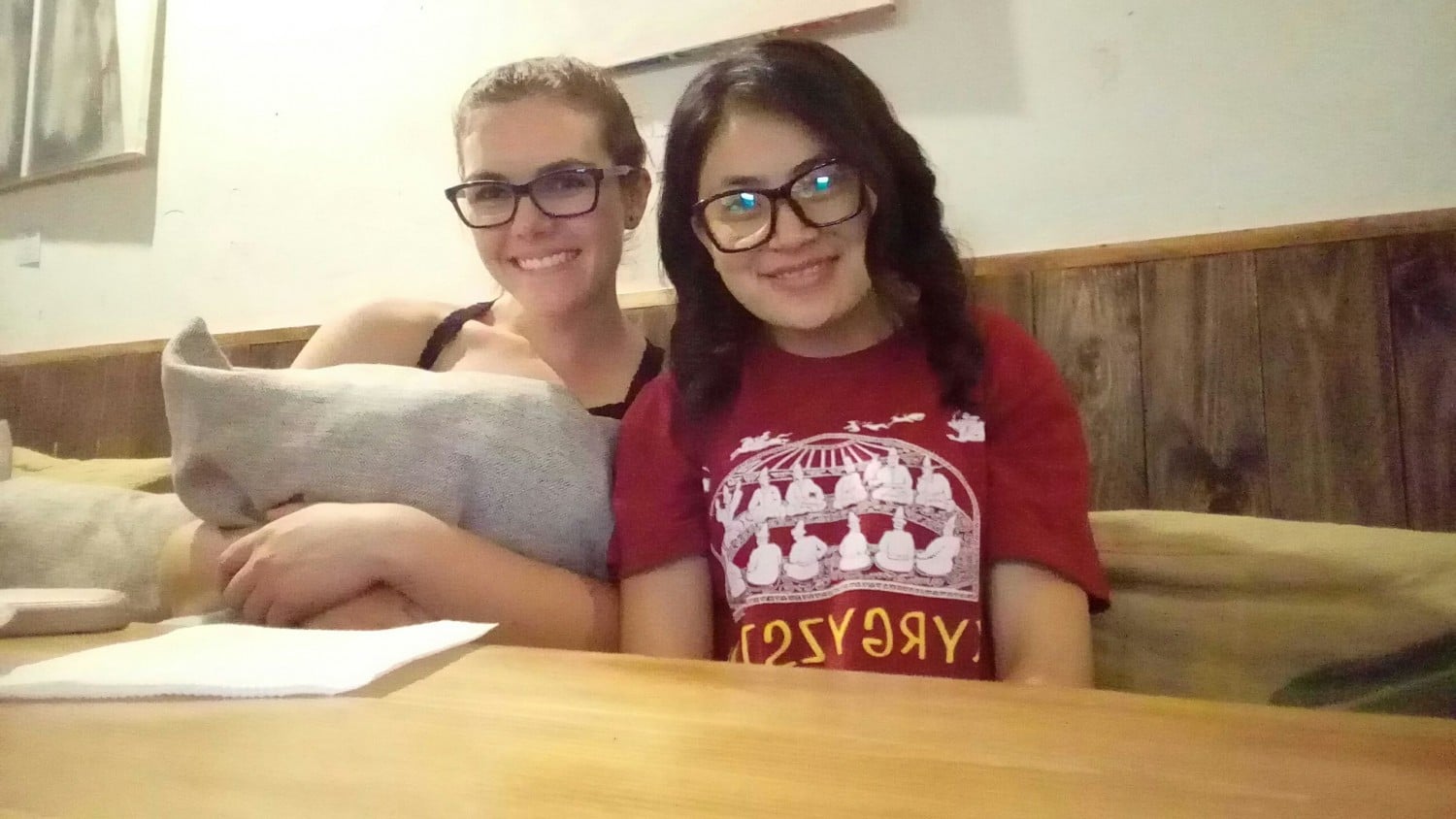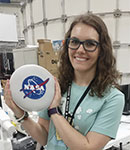Many assume that living abroad for a few months will force you to make local friends in your host country. However, the reality is more complicated. Here I will share my tips and tricks for overcoming fears and reservations and experiencing the full joy that comes from true immersion while abroad.
Why Immersion is Difficult
Many go abroad excited to meet locals while getting out and exploring their new surroundings. However, many students, once abroad, venture out only through the accompaniment of their American peers. Students may do this for all sorts of reasons, including being homesick, craving the safety of familiar association, or fearing that their Russian isn’t “good enough.” However, immersion is just what is required to fully understand the language and culture you’ve come abroad to study.
Being far away from friends and family requires a certain amount of bravery. Immersing oneself into another culture, embarking on linguistic and social exploration, and fully removing yourself from your own language – this requires yet another level of bravery.
How to Achieve Immersion
As a language nerd myself, I have tried to cultivate some habits over my several study abroad experiences to focus on meeting locals and achieving immersion. Here are a few that I think are most helpful.
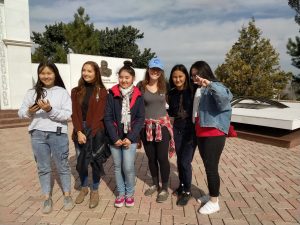
1. Avoid Larger Groups and “Groupthink”
You don’t have to avoid other Americans while abroad. However, reducing group sizes of your compatriots to two or three can work wonders in terms of being able to connect with locals. Smaller groups have less “groupthink,” a common trait in larger groups that compels you to stick together, focus on the interests of the group, and not engage with others. If even one group member decides that a local isn’t cool for hearing a foreign language and excitedly introducing themselves, it is my experience that the full group tends not to engage with the local. Smaller groups, especially those that agree that part of their group mission is to engage locals, can more easily find opportunities for language and meaningful cultural exchange.
2. Your Russian is Always “Good Enough”
The first time I went abroad, I literally spent the first two weeks speaking to people who obviously didn’t understand me. Although I had already studied Russian for three years, only the most patient, curious people were willing to talk to me. I remember being very scared and walking into a shop to ask directions. When the shopkeeper noticed I was foreign, she became intrigued. She helped me, we became friends, and are still in touch. Even with terrible Russian, there will be some people patient enough to stop and listen. The people I met on this first trip are still some of my favorite friends. They remind me how much my Russian has improved over the past few years. They are also the friends I keep in touch with and help me to maintain my Russian in between my trips abroad.
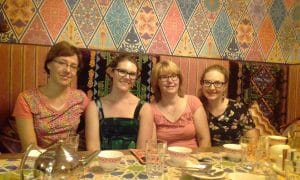
3. Network
If you have one local friend, they may introduce you to their friends. Each friend may become three or four friends. So, make personal connections with as many people as possible. Our school once invited a woman to teach us arts and crafts. I complimented her on her jacket and told her I wanted to buy one like it from the bazaar. She volunteered to take me and even helped me get my chopon jacket for a reasonable rate. Afterwards I shared a meal with her at her house. In exchange, I gave her a small memento from America – some American candy. We are still in touch.
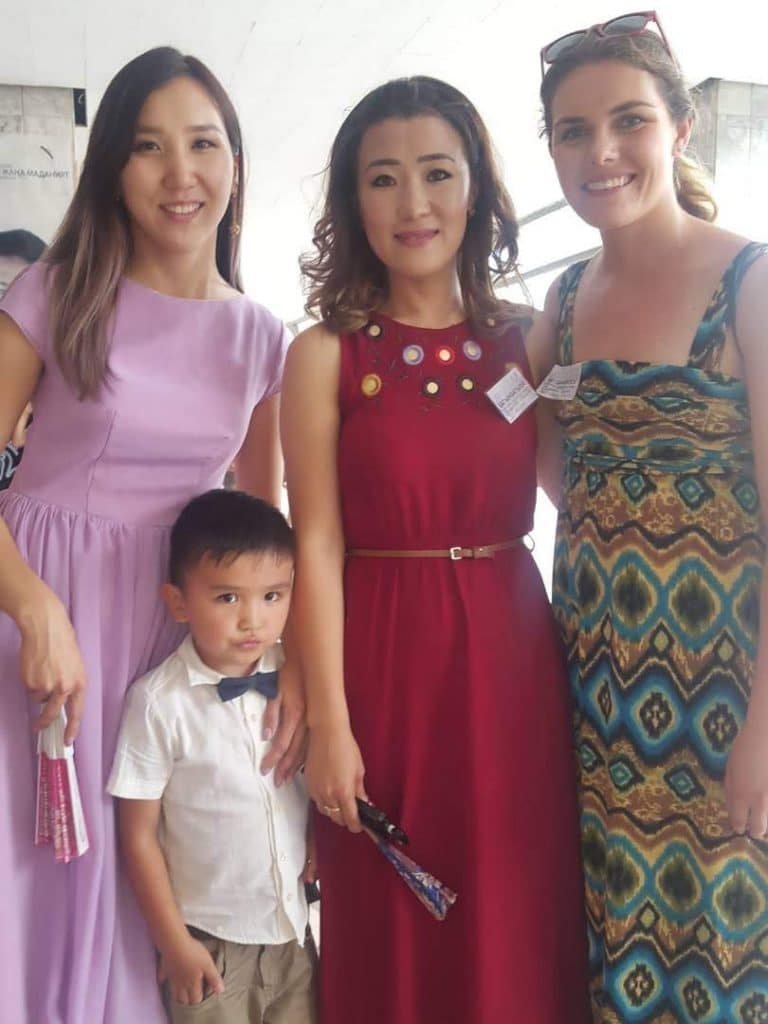
4. Find a Meeting Place
Try to find a place, or a couple of places, that you enjoy going to and where you can talk to new people. Anti-cafes, volunteer organizations, gyms, bars, nightclubs, or places of worship all work well for this. For me, this was the latter. I made it a goal to visit every congregation from my religion that I could while abroad. Members of religious congregations will often want to greet new comers and make them feel welcome – not only welcome at church but in their city as well. Some even invited me to their homes. With many, I became and remained friends. This strategy can be implemented almost any place where people meet each other and feel comfortable talking to new people.
5. Talk on Marshrutki
A lot of people are not comfortable with talking to new people. However, I’ve made many friends with people on marshrutki (shared taxi-vans that run like busses in many post-Soviet countries). Ask for advice or directions, or ask someone to hold the marshrutka for you if you aren’t back on board after a pit stop on a longer trip, such as between Bishkek and Almaty. Long distance marshrutka rides are perfect opportunities to get to know people. I recommend sitting in the back row, which has four seats instead of only two. This gives more opportunity to sit next to someone who might be up for a conversation. Even shorter rides can be opportunities. I once asked a girl I sat next to for directions to an outdoor concert. It turned out she was going there too, so we went together. That was three years ago and we’ve been friends ever since.
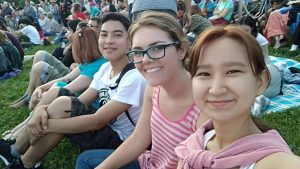
6. Connect with Local English Speakers
As I’ve mentioned before, there are lots of locals who love meeting native English speakers. It’s quite easy to find groups of these people. I made a lot of local friends working with a program called FLEX, which sends high school students from various counties to America for an academic year. These students usually come back with fairly good English and are always eager to find someone to keep in practice with. FLEX alumni in Kyrgyzstan sometimes meet and you can join them if you contact their group. Many major cities abroad have American Corners, hosted by American Embassies or Consulates, that support people learning English. You can volunteer to tutor or give a talk on a subject you know something about. The goal may not be to find people to speak English with. Yet, often times these friendships lead to cultural and language exchanges. These local people already know English and can easily tell you how to say something in Russian or explain something to you in your own language.
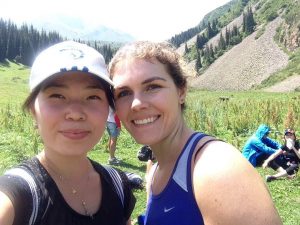
7. Join Extracurricular Activities
Connecting with local groups doesn’t just mean those learning English. You can also find hobby groups. Many SRAS students abroad find playing sports, hiking, and rock climbing good ways to connect with others. You can also do something more cerebral, such as joining a debate team. Personally, I opted find private Arabic lessons taught in Russian. Not only did this allow me an opportunity to use Russian, but sometimes I even learned new words in Russian simultaneously while learning Arabic.
8. Get Lost
Solo adventures can be wonderful learning activities. If you walk around the city by yourself and wander in and out of local establishments, at some point you will run into somebody and spontaneously start a conversation and maybe even a friendship. Once you feel confident enough, this could even become an intercity practice. The amount of people I’ve met while traveling solo has become astronomical.
These are just some of the goals that I set for myself to get me out of my comfort zone and meeting new people. New, novel experiences in your host culture will be essential parts of your experience abroad. The generosity, hospitality, kindness, and helpfulness that I’ve been shown abroad in CIS countries always moves me whenever I reflect on it. Keeping in touch with the many friends I’ve made abroad serves as a way to keep learning and as a reminder to me as to how fortunate I was to have had these experiences, which I know wouldn’t have happened if I hadn’t gone outside of my comfort zone and interacted with local people at every possible opportunity. I hope that these tips will help you do so as well.

